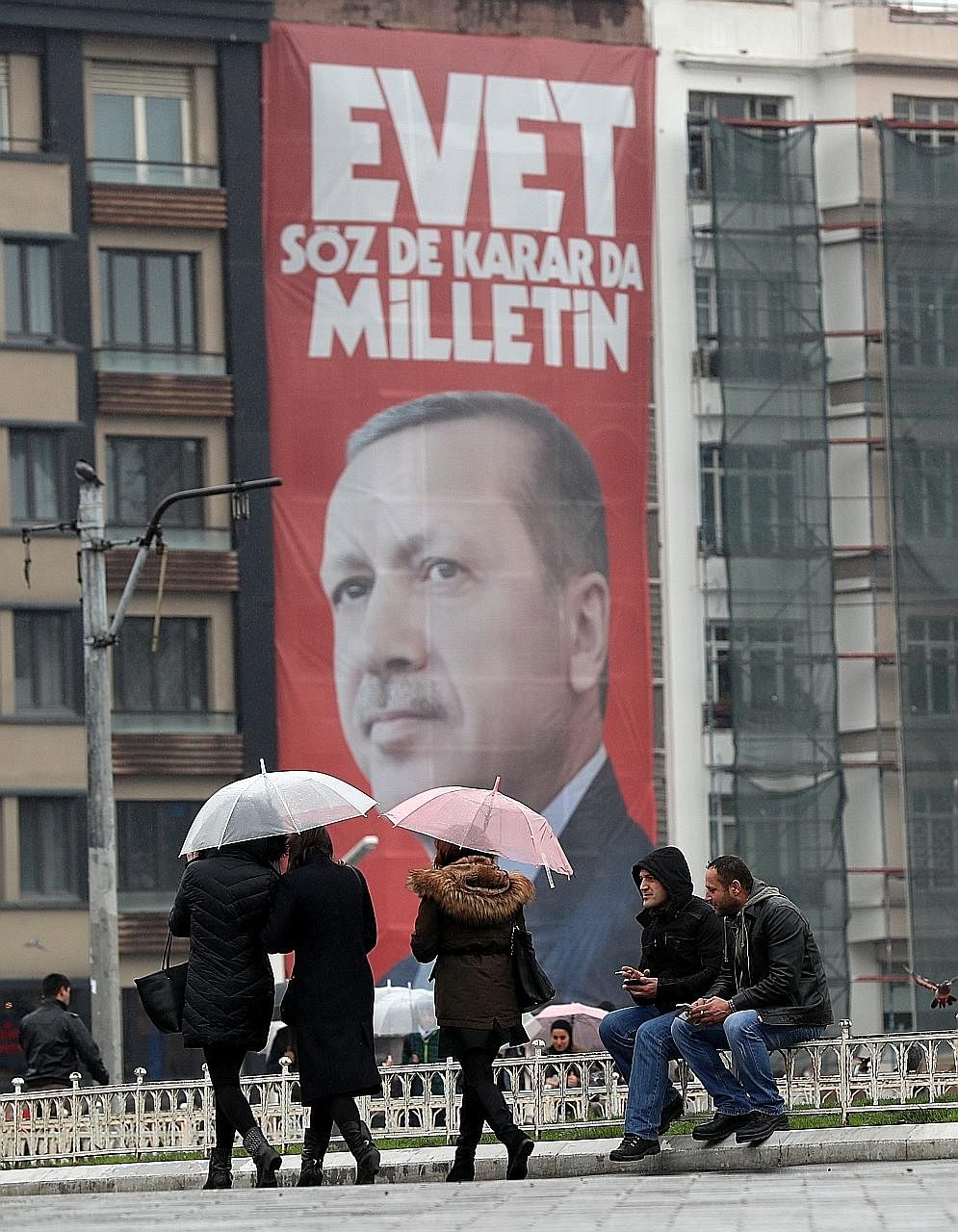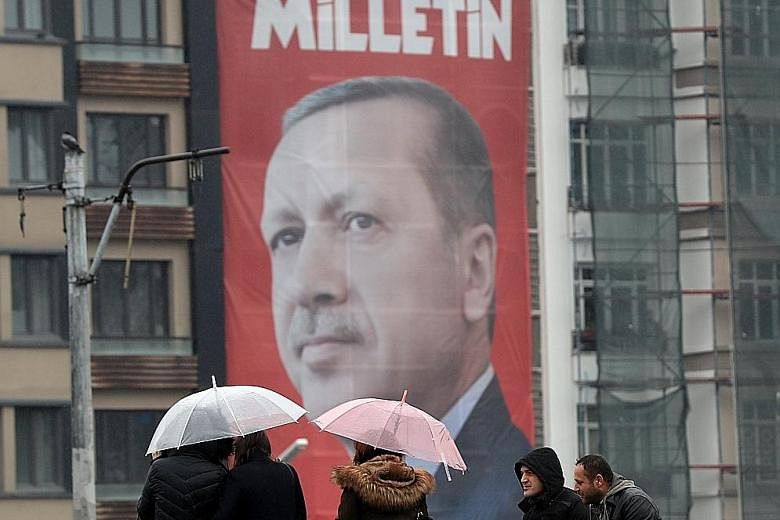Turkish President Recep Tayyip Erdogan relishes his current confrontation with the European nations which have barred his ministers from holding electoral rallies among ethnic Turkish migrants in various European cities.
Having accused Germany of "failing to shake off its Nazi past" for refusing to authorise Turkish electoral meetings on German soil and having called the Netherlands "the capital of fascism" for similar reasons, he now regularly devotes up to half of his public speeches to hurling abuse at a variety of Western countries and leaders.
The tension is linked to Mr Erdogan's campaign to win a controversial referendum granting him near-absolute presidential powers. Whenever cornered at home, his preferred electoral technique is to pick a fight with a foreign government, present himself as the only defender of Turkish pride and honour and then drop the fight after achieving his objective.
However, the current confrontation with European governments is in a different league, for it is guaranteed to cast a shadow over Turkey's relations with the European Union for many years to come. And it could prompt a more fundamental rethink of the rights and obligations of migrant populations in European countries.
EU member states have usually taken a very relaxed view of foreign electoral activities on their soil. EU citizens are entitled to vote in local elections wherever they live within the union. Large diasporas living in one country are also courted at elections by politicians from their home country. However, what Mr Erdogan and his associates want to do is vastly different from anything encountered before in Europe.
Previous cross-border electoral events were discreet affairs attended by European opposition figures hoping to gain power. But Mr Erdogan's idea of cross-border campaigning is to stage mega-rallies in the heart of Europe's biggest cities, addressed by top officials like his prime minister or foreign minister. And, ironically, this is despite foreign electoral campaigning being illegal under Turkey's own domestic laws.

What worries the Europeans most is the audience that Mr Erdogan is courting. These are not just Turks who migrated to other European countries, but also people born to Turkish migrants and bred in the EU, who are now being told that their "first loyalty is to Turkey", as Prime Minister Binali Yildirim recently put it.
There are large Turkish populations in Europe: about four million in Germany, a million in France and half a million each in the Netherlands, Austria and Britain. Not all are natural supporters of the Turkish government. Some belong to the Alevi Shi'ite community, which is suspicious of the Turkish authorities, and some are ethnic Kurds, an often restless minority inside Turkey.
Still, many hail from the poorer and more religious parts of Turkey, the constituency that supports Mr Erdogan's party. And the Turks of Europe are an undemanding electorate: They support the Turkish President because he seems to stand up for the country abroad, but are uninterested in his domestic economic performance, since they don't live in Turkey.
Estimates suggest that around 600,000 German Turks with dual nationality cast their ballots in the last Turkish general election in 2015, and up to two-thirds of them opted for Mr Erdogan's party. The President needs them even more for the constitutional referendum he plans to hold on April 16.
The referendum, which proposes to abolish the post of prime minister, marginalise Parliament and concentrate all executive power in the hands of the President, is deeply controversial. Opinion polls indicate that the electorate is divided, with 40 per cent each for adoption or rejection, and 20 per cent undecided. Mr Erdogan needs a simple majority to approve the referendum.
By picking a fight with Europe, Mr Erdogan not only burnishes his image as a nationalist, but also ensures that many overseas Turks will vote. The bigger the tensions between him and Europe, the higher the chances of a referendum victory.
European governments fear that Mr Erdogan might tear up a treaty he signed in 2015, under which he undertook to seal his borders and thereby prevent a new migration wave from reaching the continent. But that's unlikely, partly because the treaty remains useful for his broader dealings with Europe, but also because border controls in south-eastern Europe are tighter now, and the President risks being humiliated if he opens his bordersand no migrants materialise to frighten Europe. Besides, Turkey itself is keen to escape from its role as a migration conduit.
The chances are therefore high that, soon after next month's referendum is over, Mr Erdogan will try to patch up relations with Europe.
But although Germany's politicians will jump at such an opportunity, few other European leaders will. The talk in Europe now is about introducing legislation formally banning Turkish electoral campaigning - and about forcing people of Turkish descent in Europe to choose which country they'd like to call "home".


